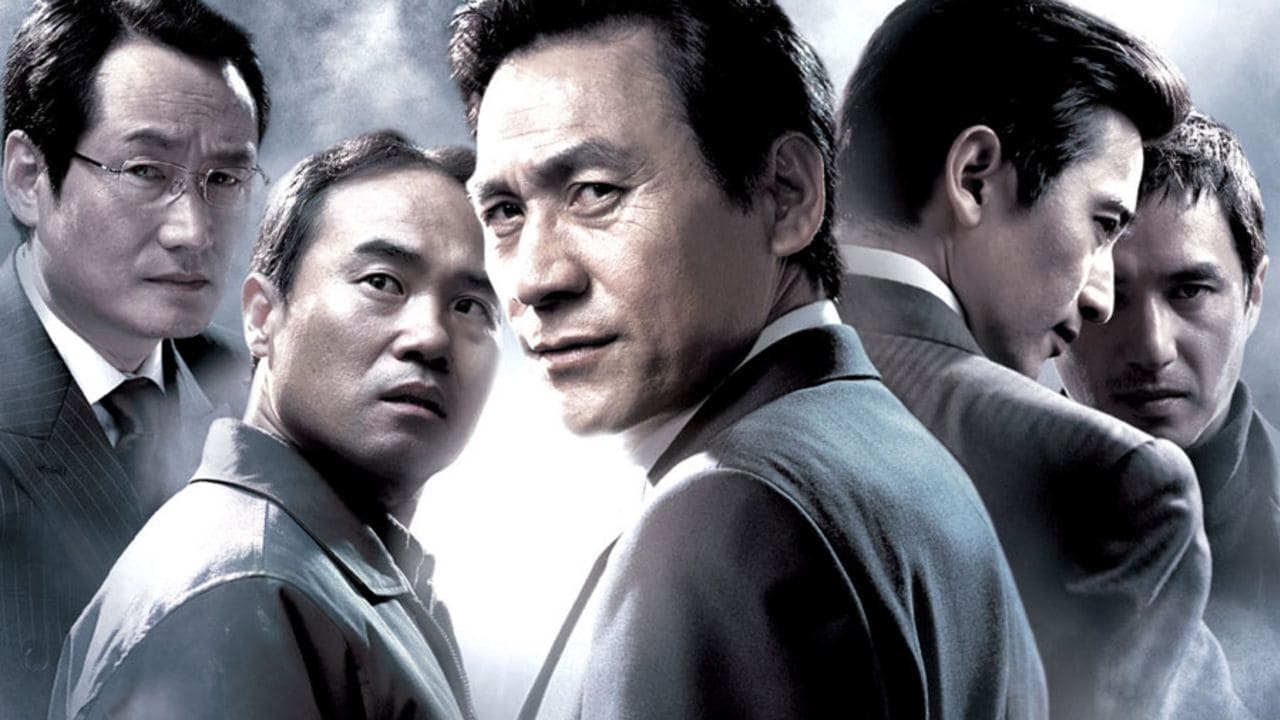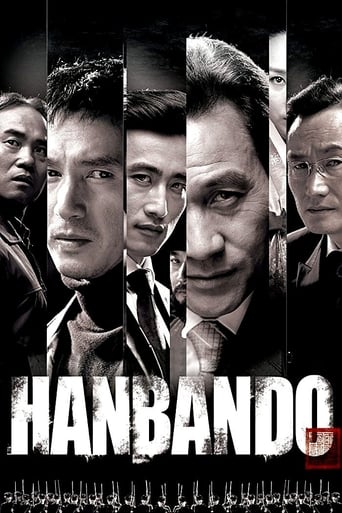

Hanbando is a Korean nationalist fantasy involving a search for the missing national Seal Of Korea, a Japanese conspiracy to renew its colonial control of Korea, and patriots and traitors battling over the destiny of the Korean nation. If this sounds nail-biting, believe me it ain't. At 147 minutes (2hrs. 27 min), it is overlong by at least 50%. There is a seemingly endless series of discussions over the plight of Korea which are agonizingly tedious to sit through. Several scenes which go back and forth from the present to Korea of the 19th Century are, of course, intended to show the still unresolved situation in Korea, with Japan as the still-threatening arch enemy. An underlying theme throughout the film is the supposed effort of the world's major powers, including the U.S., Japan, China and Russia to hold Korea back and to thwart Korean unification. For all this political content, this is an extremely boring film.
... View MoreSoftening up is vilifying? When Myungsunghwanghu was killed, she had her breasts sliced off and Japanese soldiers raped her dead body. In this movie all the Japanese samurais did were stab her six times, which I admit is gory, but is less gruesome than the truth. Ask any Korean adult that remembers history class and they will likely repeat this. The reason the portrayal was softened up was to make it viewable for a somewhat larger audience.The movie has great acting, although I must admit there are some English typos and grammatical errors. (causion, disappear). The only real cheesy sounding actor is Cha Tae Hyun. The president is portrayed perfectly, and several of the turn-arounds (the President actually ordered himself to be incapacitated to see who was Chin-il-pa ish - in favor of the Japanese).I love this movie because the director seems to bring a totally possible (theoretically) situation to life. Excellent, excellent, excellent.
... View MoreOverall, I liked it. There are things about it that could have been better thought out and some that had inaccuracy, but once I suspended my belief, it was quite enjoyable.The premise that Japan would start a war with Korea over the opening of the railroad at Dorasan and possible N/S reunification was a bit far-fetched, but I guess as good of an excuse as any to use (it worked into the plot pretty well). That Japan forged the Japan-Korea Annexation Treaty using a fake state seal and that the real stamp was hidden has been argued for years, so there is some validity for that being used in the movie.The assassination of Queen Min was a mixture of fact and fantasy in the movie. Reports from that time are that Japanese, dressed up as Korean soldiers, along with some disgruntled Korean soldiers, took the Taewongun (King Kojong's father) to the palace at 3 a.m. on the night in question. When confronted by the palace guards, the Japanese/Korean soldiers attacked, easily overtaking the defenders. In the movie, the Japanese were clearly dressed as Japanese; although it is possible some really may have been dressed that way, I tend to doubt it, as Japan wanted it to look like the work of Koreans alone. Also, how the queen died (as reported by witnesses) and how it was depicted in the movie are at odds. Witnesses report she hid in bushes outside the palace, was stabbed several times, and while still alive was violated, wrapped in a blanket, and set on fire. In the movie, she defiantly confronted the Japanese and died fairly quickly from several sword stabs and slashes. The choice for the actress to play the queen was good--the queen was a tough young lady and the actress played it well. However, Kojong, by many accounts, was not such a strong person (which is why the queen had so much control); the actor played him as fairly tough and determined.Having Ahn Sung-kee in the role of the president was pretty good (he played the part before in another movie, so he seemed confident). There were some other actors playing historical parts that were typecast (but done pretty well).Again, overall I thought it was an entertaining movie. I'll give it 7/10.
... View More(this comment might contain a bit of spoiler regarding the movie's overall atmosphere and content)First of all, the director's too busy glorifying Korea. Some history contents (eg. the death of Myungsunghwanghu) were modified to vilify Japan more than necessary, when the country is already being blamed for claiming ownership over Dokdo. Next thing I hated was the language. Actors talked in a really cheesy way; nobody in real life would talk like that. Then there are these Japanese politicians talking only in Korean, fluently. Korean actors took the Japanese politician parts, so I could understand. Not a lot of Japanese actors would participate in a movie that attacks Japan. Yet, the Japanese soldiers in the movie spoke in only in Japanese. This weird contradiction led to the movie's lack of reality. Plus, all the major events happened based on luck, or at the last minute: a classic cliché. I hate to disrespect Korean movies as I am Korean, but this movie isn't something I would praise since I am also a sane being with two working eyes.The jokes were terrible.The director did a better job in Silmido (way better).
... View More